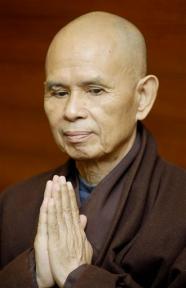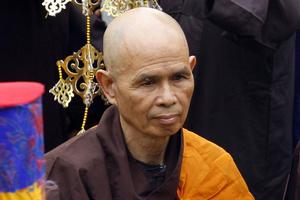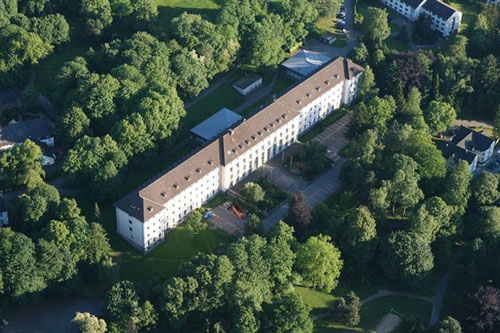2009, 4th august
HANOI Vietnam — 374 disciples of the world famous zen master Thich Nhat Hanh is being evicted from Bat Nha monastery by the Vietnam authority for failing to clear their activities to the government, an official explained to media Tuesday, such event demonstrating a senstive religion situation in the country.

“When Hanh’s followers first came in 2005, Duoc says, Vietnamese authorities approved their activities. But since July 2008, he says, they have offered 11 courses at the Bat Nha monastery without permission.”
Officials say the standoff comes from disagreements between two Buddhist factions at the monastery.
But Duoc also admits that the officials were “very surprised ” to know the calling for the government to disband religious police on the Web site for Hanh’s main monastery in southern France.
One the other hand, the supporters of Thich Nhat Hanh in the Bat Nha monastery say to The AP they have kept the official Vietnam Buddhist Church fully informed, and regard the eviction as a punishment by the authority against their master for his praise to dalai lama that upsets China and calling for broaden religious freedom in Vietnam.
The Hanh’s followers believe that the Beijing has pressured Vietnam governors to eliminate any dalai supporters.
“I’m sure he knew that speaking out would bring him problems,” said Sister Dang Nghiem to Associated Press, a close Hanh associate who spent six months at Bat Nha.
But is the statement by the Vietnamese zen master for Dalai Lama the main cause of the dispute? More investigations led by Accosiated Press show that the situation is complexer and “murky”.
Challenges from different camps

In 2005, he was invited back to his homeland by the Vietnam authority. The abbot at Bat Nha, which belonged to the official Buddhist Church of Vietnam, invited Hanh’s followers to train monks in their brand of Buddhism at the temple there, and such movement is considered by the observers as a remarkable moment that Vietnam government releases their religion control policies.
But the opening up and the new tolerance towards this non-traditional doctrine, popular among young Vietnamese, did not last more than 3 years, with challenges coming from different camps.
In September 2008, near 400 Hanh’s disciples in the Bat Nha monastery were asked to leave by the government, as their teaching are not “approved” .
Later the same year, the chairman of Vietnam’s national Committee on Religious Affairs wrote a letter accusing Plum Village, Hanh’s monastery in southern France, of publishing false information about Vietnam on its Web site.
The letter also said that Hanh’s followers should leave Bat Nha and stressed that Abbot Duc Nghi, the property’s original owner, wanted them to go.
Nghi is out of reach for the moment, and Hanh’s supporters think the abbot of Bat Nha, who showed respect to their master during his visit to Plum Village in France, is just responding under a pressure from high above.
In June 2009, local authorities cut off until today the supply of electricity, water and telephones of the Hanh’s followers’ residence.
Then, the monastery was attacked by a group of people. Windows were smashed. Luckily no one get seriously hurt.
The Associated Press reports that a local official confirmed the violence has nothing to do with the government, and eyewitnesses say that in the crowd harassing the Hanh’s followers were other, more traditional, monks who are against the new teachings practised at the monastery.
In response to the blame of stay doing nothing during the attack, an official said to the Associated Press that the police find it too sensitive to interfere such “internal affair between two Buddhist groups”
“We don’t know who the attackers are and where they come from. There was a big crowd of people. Some of them were wearing monastic clothes, so we could not conclude that they are criminals,” he said.
“The policemen present at the scene didn’t intervene because that is a sensitive situation which needed to be dealt with by the security services and the government religious committee.”

Following the issue of Thich Nhat Hanh for a long time, the head of the BBC’s Vietnamese service, Giang Nguyen, says the government has already taken profits from a relationship with Thich Nhat Hanh, and is now abandoning him.
“At the time, the government wanted to be seen as flexible and able to accommodate different ideologies. They wanted to be taken off the US religion blacklist, become a member of the WTO and attract more foreign investment. They’ve now achieved that,” he said.
By Chen Yu
Source : Associated Press




